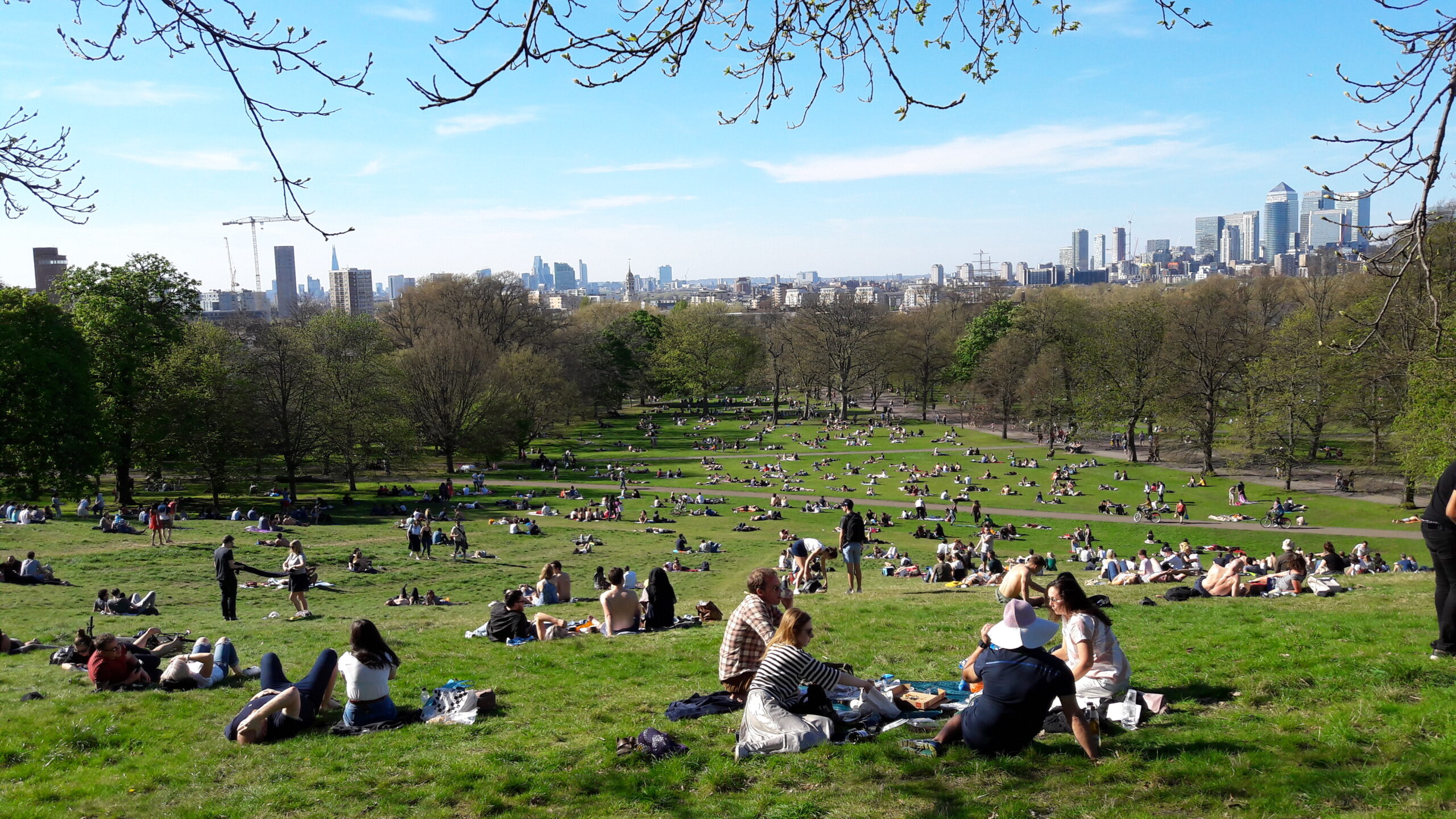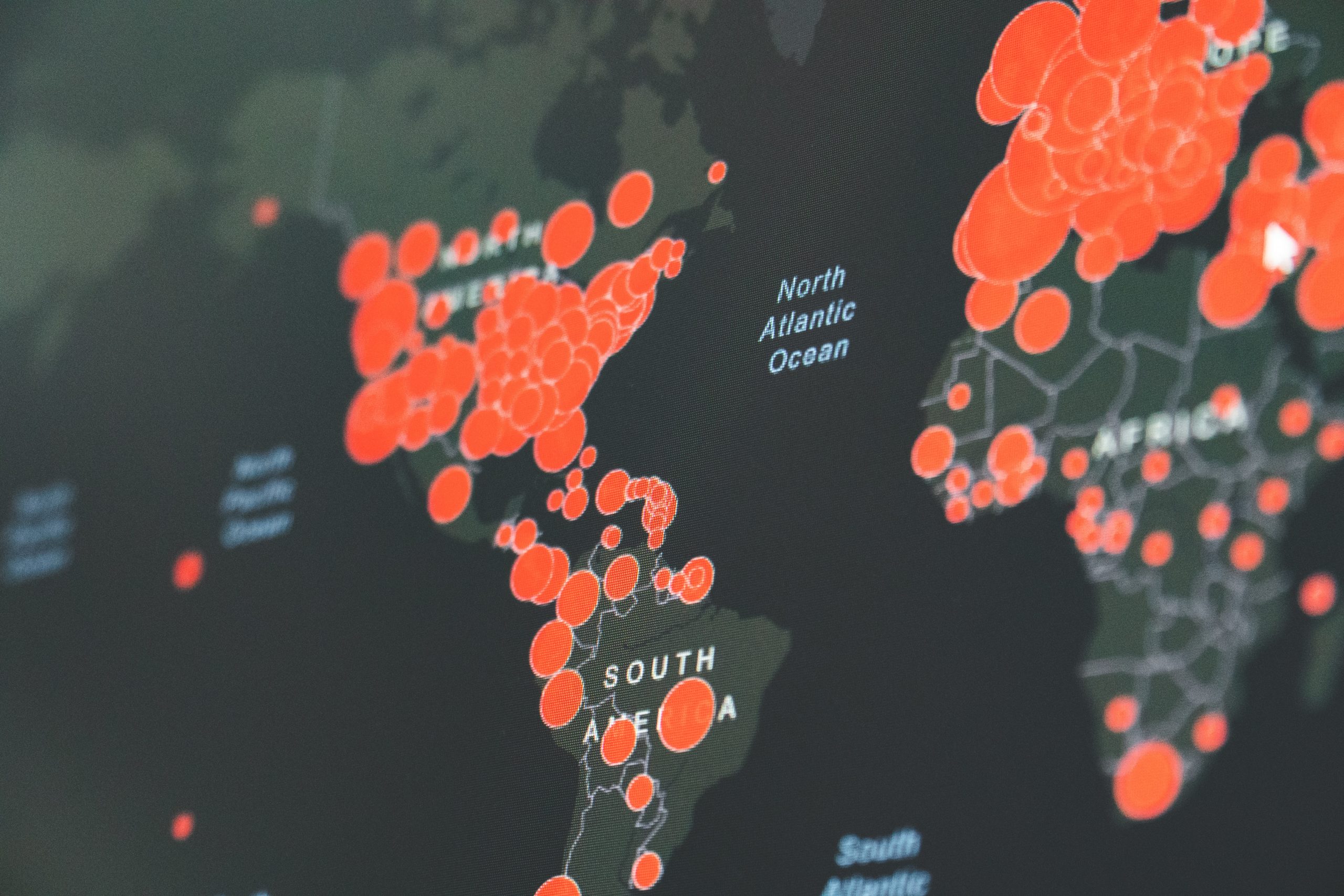Degrowth advocates for a general slowdown and large emissions reductions, minus the pandemic and social distress. The coronavirus (covid-19) has caused upheaval across the world, deaths of the most vulnerable, closed borders, financial market crashes, curfews and controls on group gatherings, and many more devastating effects. Despite observations that pollution and emissions have reduced, the sudden, un-planned, and chaotic downscaling of social and economic activity due to covid-19 is categoraically not degrowth. Instead, it’s an example of why degrowth is needed; it shows the unsustainability and fragility of our current way of life. Additionally, the response to covid-19 has shown that degrowth is possible, because society (and the state) has demonstrated an ability to dramatically change the modus operandi in response to a major crisis. This article will consider these three points in further detail: the covid-19 crisis is not degrowth, how covid-19 shows that degrowth is needed, and why covid-19 shows the potential for a societal transformation to a degrowth future. This crisis is not degrowth Just because covid-19, like an economically triggered recession, has resulted in a downscaling of production, transport, and emissions amongst other things, this does not mean it represents degrowth. Firstly, a degrowth transformation must be intentional and democratic. Secondly, degrowth requires a long-term commitment to the downscaling of production and consumption as well as the reorganization of society in a different and more just way. Thirdly, covid-19 has so far disproportionately affected the most vulnerable in society; not only the very old and young, but also workers who don’t have the option of paid remote work and so must face the trade-off between risky infection at work or staying at home awaiting unpayable bills. In the U.S., expensive health care bills and the general lack of coverage, are likely going to cause the virus to spread further, amongst uninsured and low-income people. Globally, some of the most vulnerable are refugees trapped in inadequate facilities, exemplified by the disaster waiting to unfold on the Greek island of Lesbos. Something tells us the rich aren’t struggling to find hand sanitizer and toilet paper, or dying in hospitals from lack of treatment. In summary, a degrowth transformation would be intentional and proactively pursued, and have justice and equality at its core. None of this is the case in the current situation. Covid-19 shows that degrowth is needed The current crisis highlights the unsustainability of our current system. If a flu can cause such upheaval throughout our entire social and economic system, then we should probably consider different and better ways to organize our societies. Our current political-economic system is incapable of responding to the crisis in a just and humane way. For example, the G7’s recent statement on the crisis portrays ‘the economy’ as an equal, if not greater, priority than social well-being: "we will work to resolve the health and economic risks caused by the COVID-19 pandemic and set the stage for a strong recovery of strong, sustainable economic growth and prosperity" Thus, an alternative political-economic system is needed. One that is more resilient, just, and explicitly prioritizes human (and non-human) well-being over economic growth. We will explore here some of the causes of covid-19, the structural mechanisms that have exacerbated it, and consider how this would be different in a degrowth society. Covid-19 originated from a ‘live-animal market’, where over 100 types of wild and domesticated animals are kept in close proximity and killed in front of customers. Like many pandemics before it, covid-19 entered the human population through the killing and consumption of animals. Initially then, a society in which animals were treated with more care rather than as commodities to be exploited and consumed would reduce the risk of pandemics such as covid-19. On this note, some degrowth advocates have argued for animal liberation. A strong case can be made that it is the global capitalist industrial agri-food system in particular that creates the kind of conditions that allow for the increased occurrence of viruses and their potential to spread. The occurrence (and spread) of viruses like covid-19 is also greatly exacerbated by highly dense living. Cities have been growing in size and numbers since the agrarian revolution and continue unchecked up until the present. Larger and denser cities are a consequence of out-migration from the declining countryside due to a lack of employment opportunities, economic and transport policies that favor the center over the periphery, and a culture that fetishizes the lifestyle and opportunities of the big city. Meanwhile, a degrowth transformation would emphasize the importance of community-based economic activity, re-prioritize essential work such as growing food, re-value proximity to nature, and demonstrate the possibilities for a multi-cultural, diverse, and socially-rich life outside of big cities. The economic fallout following the breakdown of global supply chains - notably the abrupt closing of factories in China - highlights what the Brookings Institute (a conservative thinktank) describe as “hidden vulnerabilities”. Similarly, the Harvard Business Review is calling for more resilient supply chains, and Foreign Policy is saying firms like Apple have been “blindsided on the supply side.” It’s almost like the business pundits and consultants are suddenly waking up to the craziness of an economic system where an iPhone requires parts from dozens of countries, ‘the cloud’ is dirty and devours a huge amount of energy to support your streaming needs, and where those pretty white boxes embody lots of (exploited) human labor. Degrowth proposes to re-localize a significant amount of production based on bio-regionalism, shortening supply chains and increasing their resilience through transparency and decentralization. Lastly, it is true that human settlements have experienced fatal epidemics for much longer than the existence of capitalism as we know it today. However, our hyper-mobile and interconnected global capitalist societies have exacerbated the spread of covid-19 through frequent long-distance travel, massive cruise ships, and short-distance flights (for example from Belgium to Italy for ski vacations). Covid-19 has grounded our hyper-mobility to a halt. We’re forced to stay rooted, and maybe it’s a moment to reflect on why we constantly feel compelled in contemporary society to be always on-the-go, be it from one activity to the next or from one continent to another for a 5 day holiday. While the reasons for ‘slowing down’ are different for covid-19 (reducing the spread of infection) and degrowth (e.g. reducing the global emissions from transport), both lead us to a similar reflection: perhaps we can be content spending much more of our time at home with family and friends, in our communities and moving more slowly and mindfully. Covid-19 shows degrowth is possible Planning, economic regulation, limiting certain social behaviors, high-levels of community cooperation and a slowing down of life (of course not for all, but for many), have all been responses to covid-19, and demonstrate the need for a re-evaluation of our way of life. Similar measures were labeled ‘politically impossible’ and ‘unrealistic’ in the context of climate and other social crises, yet today they are reality in China, across all of Europe, and now the rest of the world. Covid-19, like any crisis, highlights the potential for transformative action (and change) when society decides the crisis warrants discarding the previous bounds of normalcy. The signs of this are already here. For example, there are popular online petitions in Germany and the UK calling for a universal basic income to be implemented in order to protect those threatened by job loss and poverty due to covid-19. Climate change is expected to cause approximately 250,000 additional deaths per year between 2030 and 2050; 38,000 due to heat exposure in elderly people, 48,000 due to diarrhoea, 60,000 due to malaria, and 95,000 due to childhood undernutrition. Yet society has not been so quick to take meaningful action. An abhorrent reality is that part of the reason for inaction in wealthy nations is likely because, as the same report shows “the burden of disease from climate change in the future will continue to fall mainly on children in developing countries”. This is why it is important to acknowledge the climate crisis as being exactly that: an unfolding catastrophe requiring an urgent and drastic systemic response. Degrowth provides a way forward. From analysis to action Whilst the current slow-down of economic activity may have some analogies with degrowth, this is clearly not the societal transformation we are struggling for. Instead, the crisis shows the failure of the current political-economic system and its inadequacies in dealing with such crises in a humane and just way. Degrowth offers a more resilient, just, and sustainable alternative way of organising society. Most encouraging of all, the current crisis highlights the potential for a degrowth transformation across all scales of society. States are planning, regulating and being challenged, communities are creating mutual support networks, and individuals are radically adjusting their way of living. On the other hand, there is clearly a historical precedent for right-wing, populist, and neoliberal governments exploiting crises such as the current one to re-embed their agenda. In 2008-2009 they enacted austerity policies for the majority and bailed out the financial and insurance sector (now they are considering saving the airlines). In an upcoming article, we will consider how the degrowth movement (and other social and ecological movements) can counter this tendency for crises to be exploited for harmful ends, and consider what strategies make sense during the covid-19 crisis. We send our solidarity to everyone who needs it in this moment. The degrowth.info editorial team.

Degrowth is a movement that explores another direction for society, one where ecological and social justice become possible, along with more meaningful lives. While there is no single definition for degrowth, this entry attempts to offer some guidance for understanding degrowth in all its diversity. First, degrowth is a variety of challenges to the current status quo. Secondly, degrowth ...

The prospects for Earth’s biological diversity look increasingly bleak. The urgency of global efforts to preserve biodiversity long predates the COVID-19 crisis, but the pandemic has added new dimensions to the problem. Conservation funding from nature tourism has all but disappeared with international travel restrictions, wildlife poaching is on the rise, and various political regimes have use...

In the early 17th century, the bubonic plague is said to have played a crucial role in popping the tulip bubble in the Netherlands. Today, the coronavirus (COVID-19) is leading not only to a health crisis, but also an economic one. The outbreak is sparking realistic fears of a deep global downturn. Our globalised, just-in-time, cost-cutting, risk-taking and profit-maximising economy has shown a...